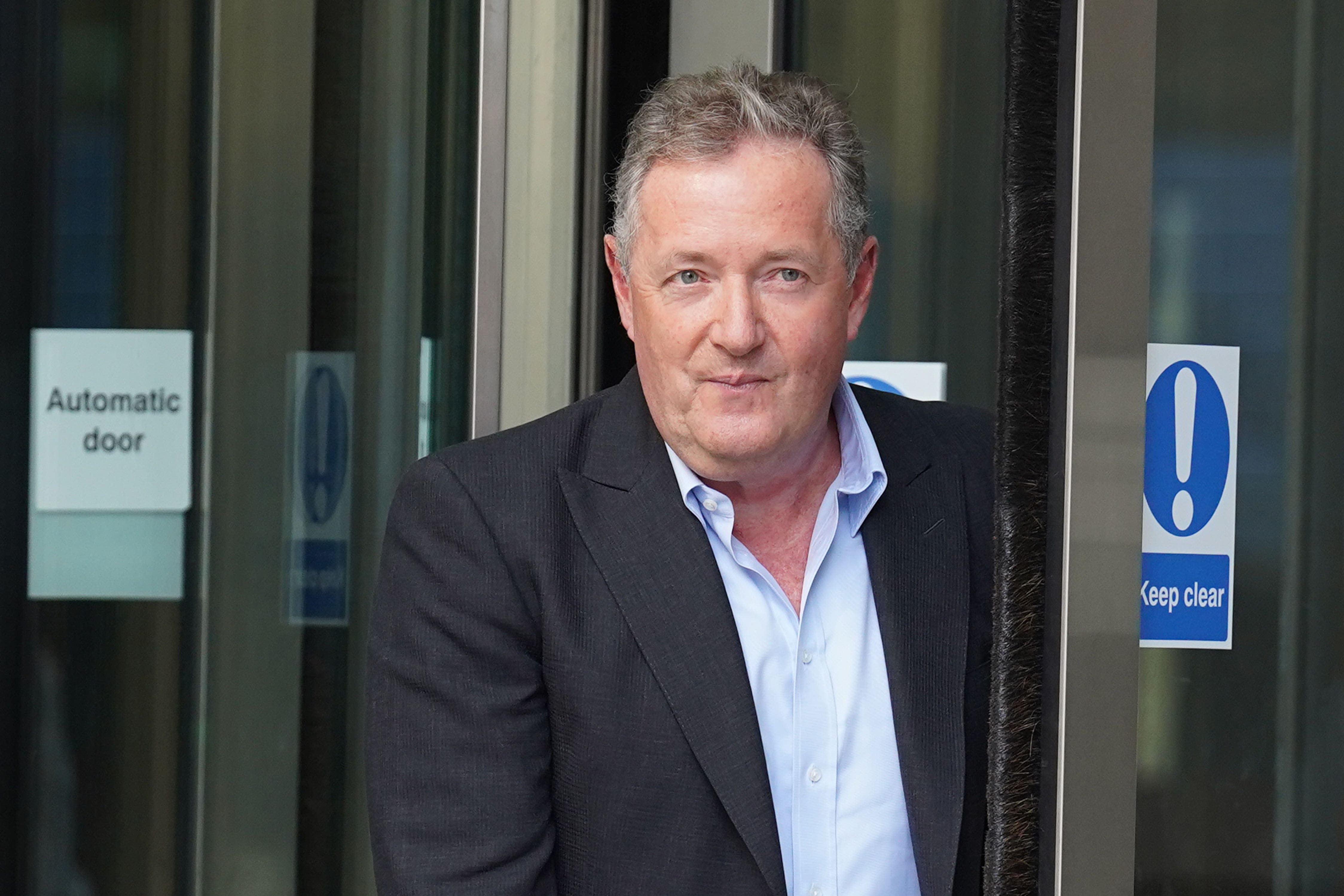Judge accepts evidence that Piers Morgan knew about phone hacking at The Mirror
Mr Morgan was editor of the Daily Mirror between 1995 and 2004.

A High Court judge has accepted evidence that Piers Morgan knew journalists were involved in phone hacking while he was editor of the Daily Mirror.
In a ruling over unlawful information gathering claims brought against Mirror Group Newspapers (MGN), Mr Justice Fancourt said “there can be no doubt” that editors of its titles knew about voicemail interception, but did not tell the company’s board or chief executive about it.
Mr Morgan, who was The Daily Mirror’s editor between 1995 and 2004, has previously denied involvement in phone hacking.
The judge ruled that unlawful information-gathering was “widespread” at MGN titles The Daily Mirror, The Sunday Mirror and The People from 1996 onwards, and phone hacking became “habitual” from 1998.
The judge’s findings come after a trial of cases brought against the publisher, including a partially successful claim by the Duke of Sussex.
I found Mr Scobie to be a straightforward and reliable witness, and I accept what he said about Mr Morgan’s involvement in the Minogue/Gooding story
In his ruling on Friday, Mr Justice Fancourt said he accepted the evidence of royal biographer Omid Scobie, who told the trial earlier this year that Mr Morgan was told about a use of phone hacking.
The court previously heard that Mr Scobie did work experience at The Daily Mirror in spring 2002, and overheard Mr Morgan being told that information relating to Kylie Minogue and her then-boyfriend James Gooding had come from voicemails.
In his judgment, the judge said an article about them in May 2002 carried the byline of James Scott “who was one of the showbiz journalists and a known phone hacker”.
The judge added that there was a £170 invoice from private investigator firm TDI to Mr Scott from earlier that month, for “extensive inquiries carried out on your behalf”, and the mobile telephone numbers of both people were in Mr Scott’s PalmPilot.
“These documents bear out Mr Scobie’s recollection,” the judge said.
He said Mr Scobie was “pressed hard about the likely veracity of these accounts” while giving evidence, adding: “I found Mr Scobie to be a straightforward and reliable witness, and I accept what he said about Mr Morgan’s involvement in the Minogue/Gooding story.
“No evidence was called by MGN to contradict it.”
Mr Justice Fancourt also said he accepted “without hesitation” evidence from David Seymour, who was group political editor of The Daily Mirror from 1993 to 2007, who told the trial that he regarded Mr Morgan as “unreliable and boastful, who was apt to tell untruths when it suited him”.
Mr Seymour said he was told by a colleague that Mr Morgan had “taunted” the chief executive of BT at a lunch in 2002, where the then chairman of MGN’s parent company was present, telling him that he would need to tell his customers to change their phone PINs from factory settings.
This evidence was challenged by MGN lawyers with the suggestion that “it would have been the last thing that Mr Morgan would have done if he was involved in phone hacking”, the judge said.
But Mr Seymour said Mr Morgan was “an extremely boastful person and he would have really enjoyed saying to the chairman, chief executive of BT: aren’t we clever”.
The judge said in his ruling: “Mr Seymour agreed that Mr Morgan was no fool, but said that he behaved foolishly at times, and that he felt this showed that Mr Morgan knew that his journalists were involved in phone hacking.
“Mr Seymour struck me as a man of intelligence and integrity. I accept his evidence without hesitation.”
The judge also said information from a private investigator firm was “clearly” the source of an article that claimed Prince Michael of Kent, the late Queen’s cousin, was £2.5 million in debt to a Coutts & Co bank, which was front page of The Daily Mirror in January 1999.
He said Southern Investigations, a firm that issued invoices linked to the story, was “conducting criminal activities”, with Gary Jones, a journalist behind the story, being “a regular customer”.
When Prince Michael raised a legal complaint against MGN, Mr Morgan said the allegation came from “an impeccable source who has an intimate knowledge” of the prince’s finances.
But the judge said MGN’s case that “confidential sources” were involved in the story was “hopelessly unrealistic” and “invented”.
The publisher later settled Prince Michael’s claim, agreeing to publish an apology and pay his legal costs, the court was previously told.
Mr Justice Fancourt was told the complaint was also handled by Martin Cruddace, The Daily Mirror’s in-house lawyer at that time, and then group legal director Paul Vickers.
The judge said the episode “demonstrates that the editor, a member of the legal department and Mr Vickers, a board member, knew in 1999 that journalists in the Daily Mirror were conducting unlawful information gathering, using very dubious private investigators”.
Mr Justice Fancourt also found that unlawful activity was “concealed” from Parliament, shareholders and the public, as well as the board overseeing MGN.
In his summary of his ruling, he said: “The board as a whole was not told about it.
“That was because the editors of the three newspapers, the editorial managers of the company and [chief executive Sly] Bailey and Mr Vickers did not report what they knew, or suspected, to the board.
He added: “The likelihood of extensive illegal activity should have been investigated properly by Ms Bailey and Mr Vickers, at the latest in early 2007, but it never was.
Bookmark popover
Removed from bookmarks